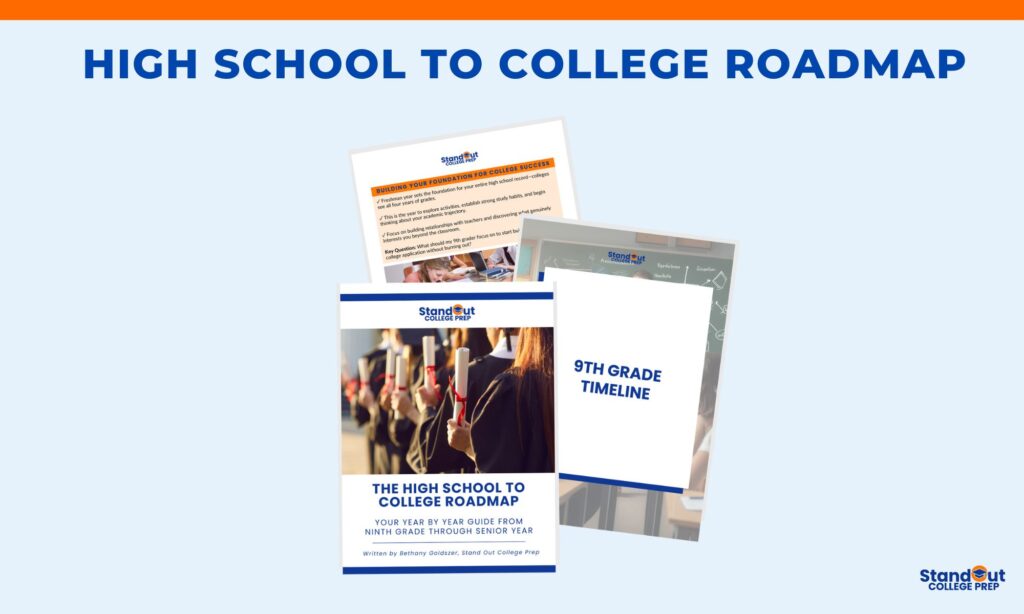If you missed the traditional college application deadlines, don’t worry! There are still plenty of colleges that offer rolling admissions, meaning they accept applications throughout the year. This can be a great option for students who need more time to decide or who have had a change of plans. Check out some of the top colleges with rolling admissions and find your perfect match.
As a college applicant, it’s important to understand the different types of college admissions processes, including rolling admissions. Rolling admissions can be a great option for students who are looking for flexibility in the college application process. In this post, we’ll define what rolling admissions are, explain how they work, and discuss the benefits and drawbacks of this type of admissions process.

Table of Contents

What is Rolling Admissions?
Rolling admissions is an admissions process where colleges review applications as they are received, rather than waiting until a specific deadline to review all applications at once. The admissions process is open for a set period of time, and decisions are made on a rolling basis throughout that time. Rolling admissions is different from regular admissions, which have specific application deadlines and review all applications at once after the deadline.
Rolling admissions is a type of college admissions process where applications are accepted and reviewed on a continuous basis, rather than having a set deadline for all applicants. This means that students can apply at any time during the year and receive a decision within a few weeks to a few months, depending on the school. Rolling admissions can be a great option for students who missed traditional application deadlines or who want to keep their options open.

How Rolling Admissions Works?
The rolling admissions process starts when the college opens the application process. Applications are reviewed as they are received, and decisions are made on a rolling basis. This means that students who apply earlier in the admissions cycle have a better chance of being admitted, as there are more spots available. However, the rolling admissions process typically continues until all spots in the incoming class are filled. Students who apply later in the process may have fewer spots available and may face more competition for admission.

Benefits of Applying to Colleges with Rolling Admissions
One of the biggest benefits of rolling admissions is flexibility for applicants. Because applications are reviewed as they are received, students can submit their applications as soon as they are ready, rather than waiting until a specific deadline. Additionally, rolling admissions can provide opportunities for early acceptance. If a student applies early in the process and is admitted, they can relax and focus on other aspects of the college application process, such as scholarship applications. Finally, rolling admissions can increase a student’s chances of getting admitted. With more spots available earlier in the process, students who apply early can increase their chances of being admitted.
Applying to colleges with rolling admissions can have many benefits for students. First, it allows for more flexibility in the application process, as students can apply at any time during the year. This can be especially helpful for students who may have missed traditional application deadlines or who are still deciding on their college choices. Additionally, rolling admissions can provide a quicker turnaround time for decisions, allowing students to plan and prepare for their college experience sooner. Finally, some colleges with rolling admissions may have less competition for spots, increasing the chances of acceptance for students.

Drawbacks of Rolling Admissions
One drawback of rolling admissions is that students have a limited time to make a decision. If a student is admitted early in the process, they may have to make a decision before they have heard back from other colleges. Additionally, rolling admissions may limit scholarship opportunities. Many colleges have specific deadlines for scholarship applications, and students who apply later in the process may miss out on those opportunities.
Full List of Colleges with Rolling Admissions

Tips for Applying to Colleges with Rolling Admissions
Applying to colleges with rolling admissions can be a great option for students who missed the traditional application deadlines. However, it’s important to keep in mind that these colleges still have limited spots available and competition can be high. To increase your chances of acceptance, make sure to submit a strong application with a well-written personal statement and letters of recommendation. It’s also important to research each college thoroughly and demonstrate a genuine interest in their programs and campus culture. Finally, don’t wait until the last minute to apply – even though these colleges have rolling admissions, it’s still best to apply as early as possible to secure your spot.
The Best Time to Submit Application
The best time to submit a college application varies depending on the specific college and its application deadlines. However, as a general rule, it’s recommended to submit your application as early as possible. By submitting your application early, you can increase your chances of being admitted and potentially receive an early acceptance decision. Additionally, submitting your application early can give you more time to complete any additional requirements, such as essays or recommendation letters.
For colleges with rolling admissions, it’s important to submit your application as soon as you are ready, as admissions decisions are made on a rolling basis. This means that earlier applicants have a better chance of being admitted, as there are more spots available. However, be sure to review the specific application deadlines and requirements for each college to ensure that you are submitting your application on time and including all necessary materials.
For colleges with regular decision deadlines, it’s recommended to submit your application well before the deadline to ensure that your application is reviewed in a timely manner. Many colleges receive a large number of applications right before the deadline, so submitting your application early can help ensure that your application receives proper consideration.
In summary, the best time to submit a college application depends on the specific college’s application deadlines and requirements. As a general rule, it’s recommended to submit your application as early as possible to increase your chances of being admitted and to allow for ample time to complete any additional requirements.

Importance of staying organized and on top of deadlines
When applying to colleges with rolling admissions, it’s crucial to stay organized and on top of deadlines. Unlike traditional application processes, there is no set deadline for these colleges, which can make it easy to procrastinate. However, submitting your application early can increase your chances of acceptance and give you more time to explore other options if needed. Keep track of application requirements and deadlines for each college you’re interested in, and create a schedule to ensure you have enough time to complete each application thoroughly. Don’t let a lack of organization and planning hold you back from your dream college.
How Rolling Admissions Affects College Decision Timelines
Rolling admissions typically allows you to apply to colleges and receive decisions throughout the year, often as early as a few weeks after submitting your application. This can be an advantage if you prefer receiving decisions sooner, but it also means that spaces in the class may fill up as time goes on. The earlier you apply, the more likely you are to have a higher chance of being accepted, especially at more competitive schools with rolling admissions. The decision timeline is generally shorter than regular decision cycles, but you must still be aware that waiting until later in the cycle may reduce your chances.
How Colleges Use Rolling Admissions to Manage Enrollment
Colleges with rolling admissions use the process to continually evaluate applications as they are received, allowing them to assess and admit students on a first-come, first-served basis. This gives schools the flexibility to build a well-rounded class while controlling enrollment numbers as they go. Rolling admissions also help colleges manage their workload by spreading out the decision-making process, rather than evaluating a large group of applications all at once. This flexibility benefits you too, as you don’t need to wait until the traditional decision day for an answer.
How to Stand Out in Rolling Admissions
Standing out in a rolling admissions process can be challenging due to the early evaluation of applications. To increase your chances, it’s important to apply as early as possible to ensure your application is reviewed before spaces fill up. Additionally, making sure your application is complete and polished can help you stand out. Highlight your academic achievements, extracurricular activities, and any special talents or experiences that might set you apart from other applicants. A well-crafted personal statement and strong letters of recommendation can further help showcase your uniqueness.
Are Colleges with Rolling Admissions Less Competitive?
It’s a common misconception that colleges with rolling admissions are less competitive than those with regular decision cycles. While it’s true that rolling admissions allow you to apply later in the admissions cycle, some colleges with this process can still be highly competitive, especially selective schools. The main difference lies in the timing of your application, as rolling admissions may provide a quicker, more flexible timeline, but the admissions standards remain the same. In fact, the earlier you apply, the better your chances of being accepted, as schools often have a limited number of spots available later in the cycle.
How to Handle Multiple Rolling Admissions Offers
If you receive multiple offers through rolling admissions, it can be a challenging decision-making process. First, make sure you understand each college’s deadline for enrollment and financial aid decisions. It’s crucial to carefully review the programs, campus culture, and financial aid offers from each school. Once you’ve made your decision, make sure to formally accept one offer and notify the other colleges of your decision. This helps open spots for other prospective students. Be sure to keep track of deadlines and requirements for deposits to secure your spot.
Rolling Admissions vs. Early Decision: What’s the Difference?
Rolling admissions and early decision differ mainly in terms of commitment. Early decision is binding, meaning that if you are accepted, you must attend the school and withdraw all other college applications. In contrast, rolling admissions is non-binding, allowing students to apply to multiple schools and compare offers without the pressure of commitment. Additionally, early decision applicants typically receive decisions sooner and may have a slightly higher chance of being accepted due to the limited pool of applicants, whereas rolling admissions decisions are spread out over time and can depend on when you apply.
The Impact of Rolling Admissions on Financial Aid
Financial aid may be impacted by rolling admissions, as some colleges offer financial aid on a first-come, first-served basis. The earlier you apply through rolling admissions, the better your chances of receiving the maximum amount of financial aid. Many schools distribute funds as applications come in, so if you wait until later in the cycle, you may find that financial aid resources are more limited. It’s essential to submit your financial aid applications, such as the FAFSA and CSS Profile, as early as possible to maximize your aid package.
How to Follow Up on Your Rolling Admissions Application
After submitting your application under rolling admissions, it’s important to follow up to ensure everything is in order. First, check your application portal for updates, and if possible, verify that all documents have been received. If the school provides a confirmation email or status tracker, monitor it regularly for any updates or requests for additional information. If you haven’t heard back within the typical timeframe, it’s appropriate to reach out to the admissions office to inquire about the status of your application. Keep your follow-up communication polite and concise, as admissions offices are often busy during peak times.
Rolling Admissions and the Waitlist: What You Need to Know
While rolling admissions allows for quick decisions, it also comes with the possibility of being placed on a waitlist if spots fill up. If you’re waitlisted, the school has not fully rejected you but is instead waiting to see if there are open spots in the class after the initial offers have been accepted. If you are placed on the waitlist, make sure to express your continued interest in attending and submit any requested materials. Be patient and keep in mind that being waitlisted doesn’t guarantee admission, but you can still be admitted later if spaces become available.
Top Colleges with Rolling Admissions
Many reputable colleges and universities offer rolling admissions, allowing applicants more flexibility in their application process. Some of the top schools with rolling admissions include Rutgers University, Arizona State University, Indiana University, and University of Alabama. These schools use rolling admissions to evaluate students as they apply, with many of them offering competitive programs and high acceptance rates. Applying early to these schools can give you an advantage in the admissions process, and it also allows you to explore more options for your college journey.
Conclusion + Next Steps
Rolling admissions can be a great option for students who are looking for flexibility in the college application process. However, it’s important to weigh the pros and cons before choosing a rolling admissions process for college applications. By understanding how rolling admissions work and the benefits and drawbacks of this type of admissions process, students can make informed decisions about their college applications.







